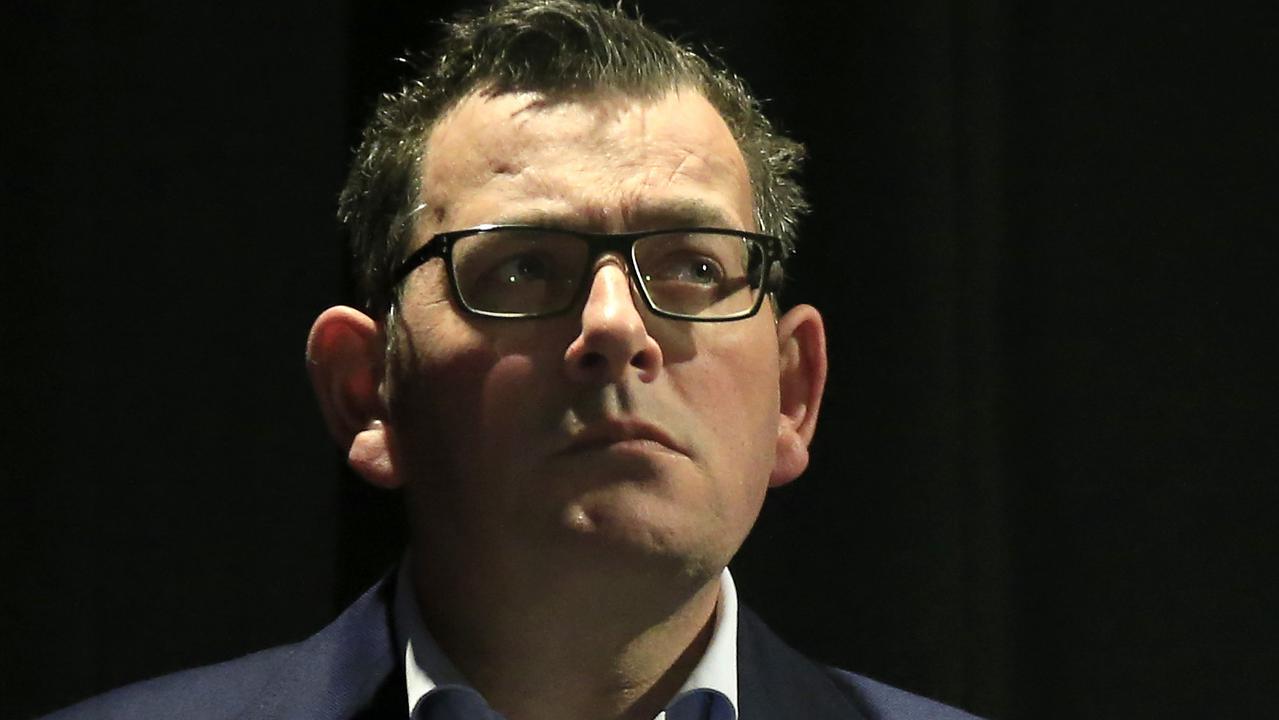Sisto Malaspina ‘one of the greats’ remembered by Melbourne
Sisto Malaspina was everyone’s friend. He was a Mr Melbourne, rare for the unconditional affection he both gave and received. Yesterday it was clear that Melbourne loved him back, writes Patrick Carlyon.
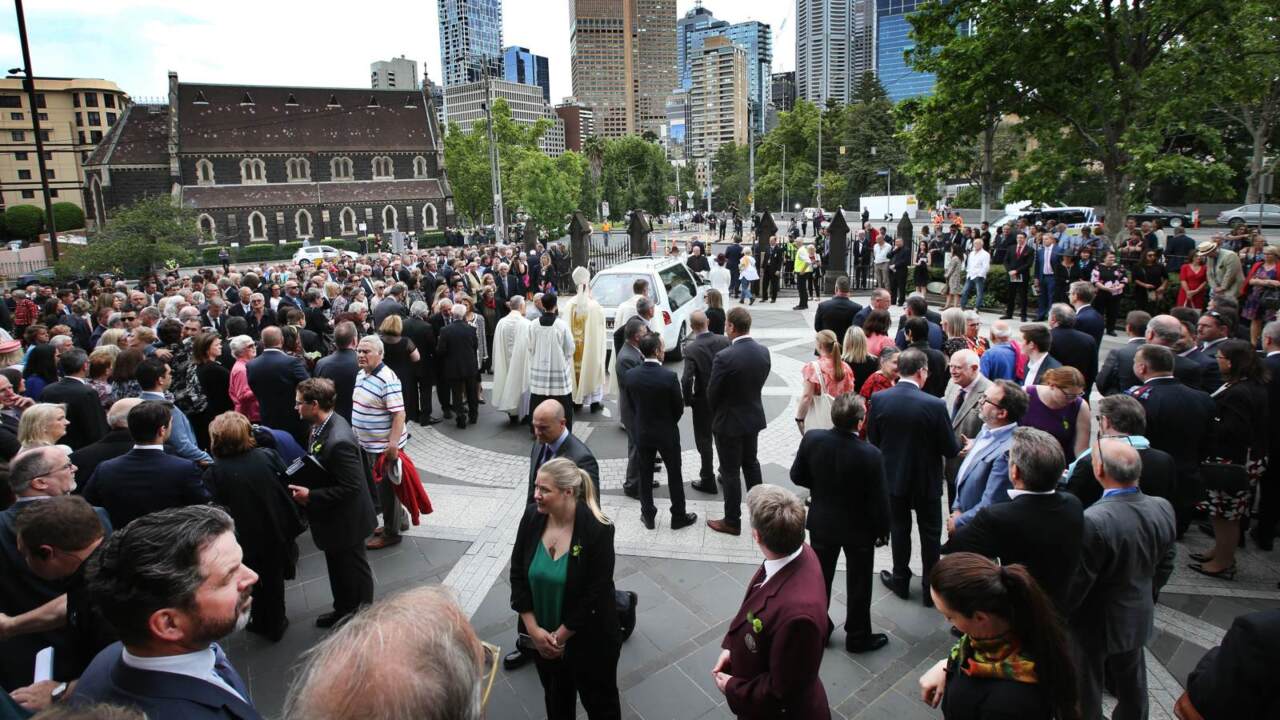
Patrick Carlyon
Don't miss out on the headlines from Patrick Carlyon. Followed categories will be added to My News.
Trucking magnate Lindsay Fox never thought he would be addressing a full house at St Patrick’s Cathedral to talk about a restaurateur.
Not all these years after Fox discovered Pellegrini’s in the 1950s. Not for his one-time grand piano mover, and waiter, an “old buddy” and “one of the greats”.
Sisto Malaspina’s memory brought out a side of Fox the world does not usually see. His voice quavered and he wiped his face with a handkerchief. But not before he had shared stories about Malaspina’s cafe kitchen, a warm hub spared the usual social hierarchies, where tradies mingled with corporate titans.
MORE: SISTO PASSES PELLEGRINI’S ONE LAST TIME
WHY SO MANY WILL NEVER FORGET SISTO
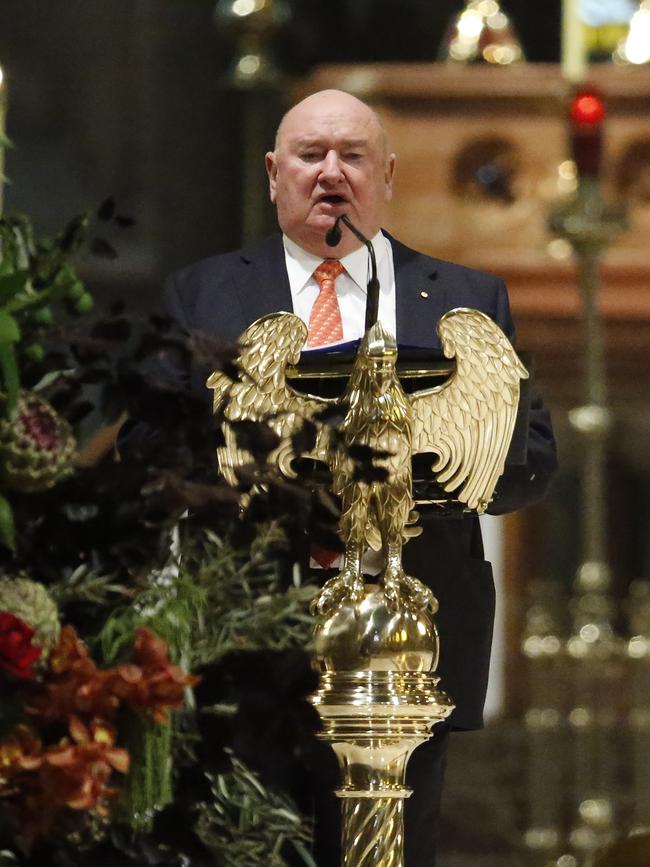
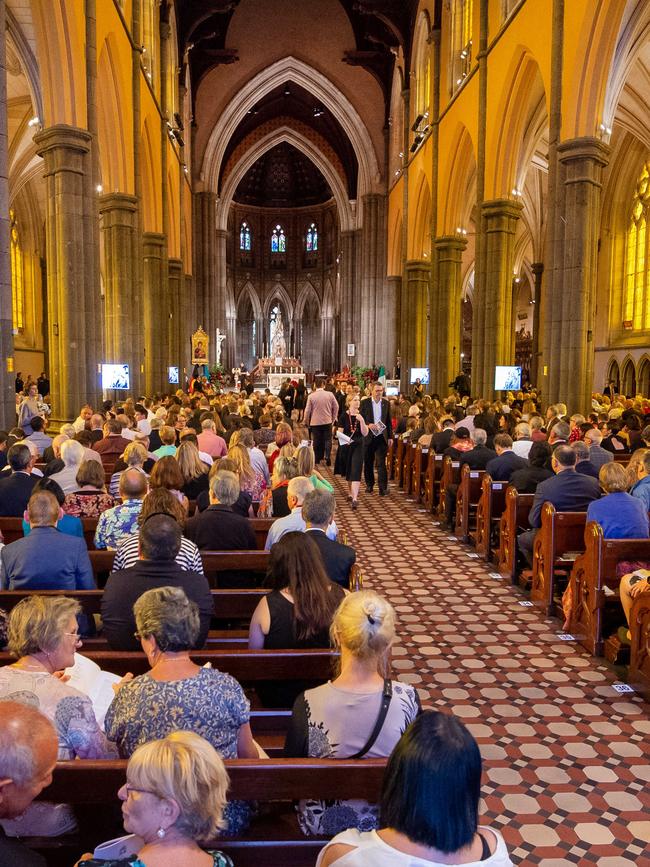
A chief executive huddled in the kitchen with Fox and Malaspina just a few weeks ago. It’s where entrepreneur Harold Mitchell took Kevin Rudd, and Rudd discovered Malaspina treated all his customers “like foreign ministers”.
Mitchell once took a White House official and came across his Pellegrini’s mate Mick — Mick Gatto, that is.
They weren’t customers, Malaspina’s son, David, explained. His father never big-noted himself about who he had served. The reason his father left home so early and returned so late? Because his customers were “friends”.
Many of those friends turned out on Tuesday, under leaden skies, to farewell a piece of Melbourne.
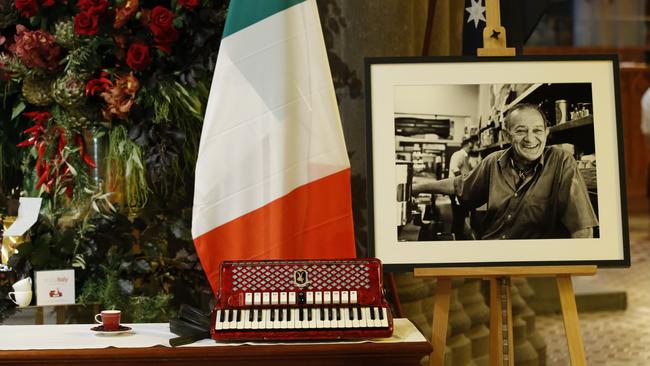
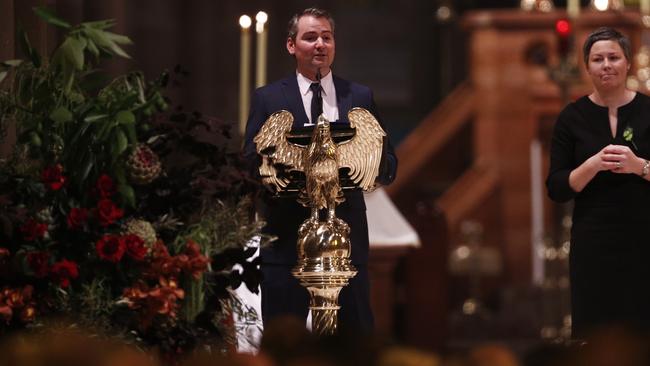
The dignitaries piled in, from Opposition Leader Bill Shorten to a couple of premiers. Most got the memo and turned out in splashes of colour. Opposition Leader Matthew Guy was especially loud in a purple tie. Derryn Hinch’s aqua scarf might have been spotted from space. Mitchell shrugged off his dark blazer mid-speech for a yellow jacket and cravat.
Police officers in their dozens sat in the audience, while a heavy police presence outside the church hinted at the unfairness of Malaspina’s death almost two weeks ago.
Yet perhaps the somebodies were not the mourners who stood out most.
The crowds started to queue outside the church almost two hours before the service began. Many wore casual shirts and inexpensive clothes. Some pushed prams and a woman hobbled on crutches. A few hundred people settled for a big screen smartly arranged on the cathedral grounds for the overflow of guests.
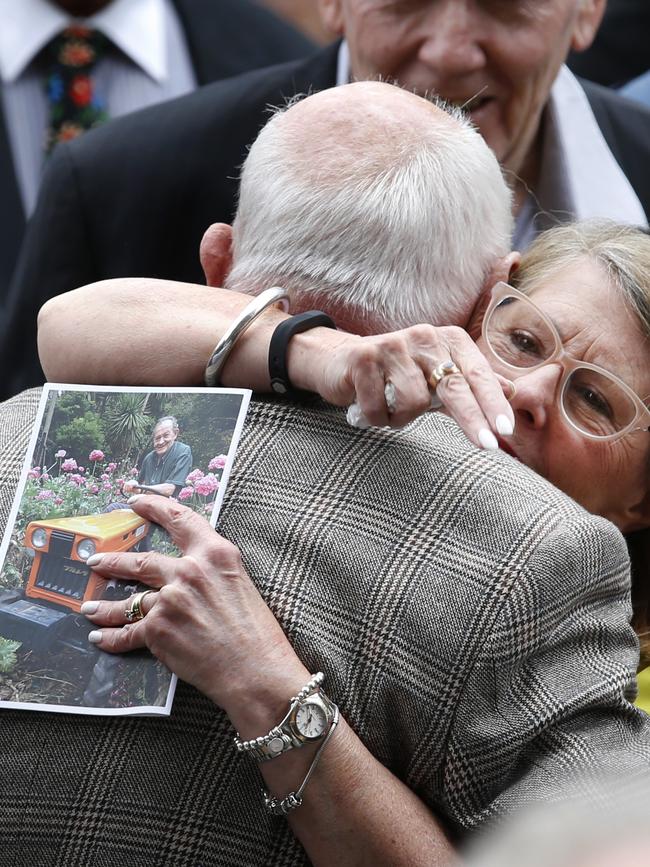
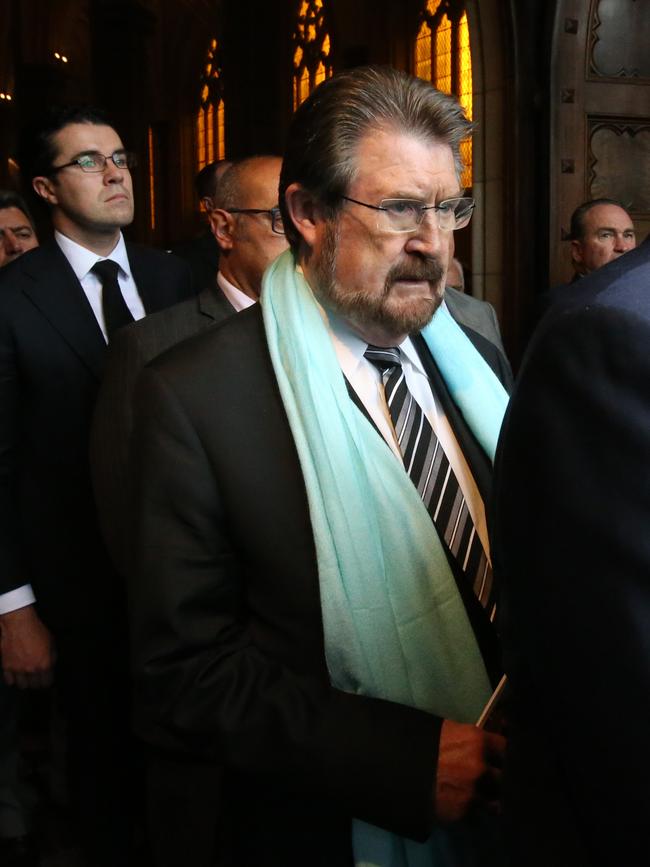
The ordinary folk were easy to overlook as individuals, but collectively they underscored the bigger story of Malaspina and his city. He was everyone’s friend. He was a Mr Melbourne, rare for the unconditional affection he both gave and received. In public and in private, it seems, he was true to honest values and the pursuit of happiness. It’s quite likely, in Victoria’s history of state funerals, no one else could claim such simple virtues for their lofty status.
Tuesday’s audience heard how Malaspina was an exemplar of multicultural success built on generosity of spirit and hard work. But he added a Melbourne quirk, and forged a city’s love of fine food and coffee, in a fixation that Melburnians now pride themselves on almost as deeply as Malaspina’s Italy.
As he summed up to his son: “smiles cost nothing”.
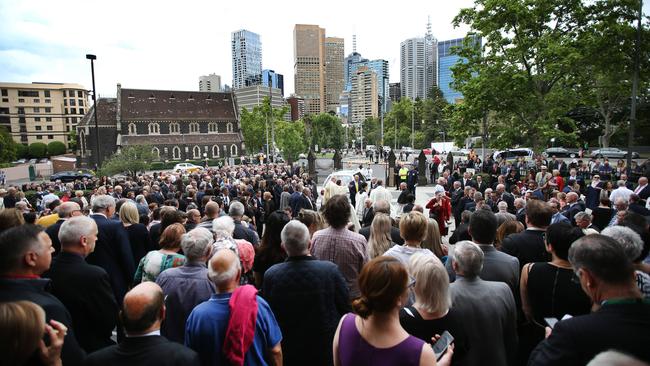
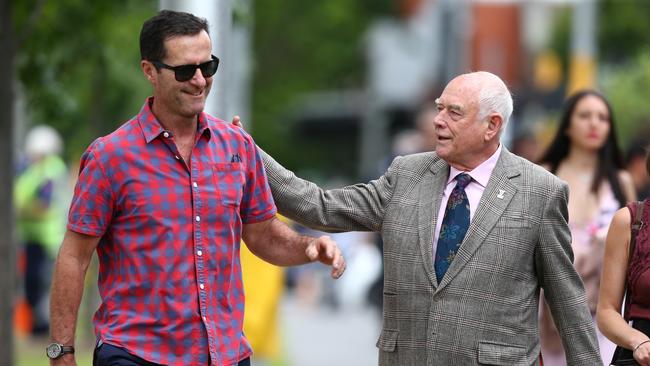
Here was his starting point: Malaspina made people feel special, with a kindness that did not discriminate. It meant an archbishop would lead his funeral service in a fitting tribute. Yet, given the barbarism of his death, his grand farewell would also highlight the dreadfully misplaced reasons for it.
Governor Linda Dessau tackled these issues. She spoke of a Melbourne that holds to hopes rather than fears. This Melbourne, she said, had praised Malaspina before he died. This Melbourne always featured Pellegrini’s references in books about the city.
His son, David, spoke of a young migrant who followed his brothers in the 1960s. He met Vicky, a Polish migrant, and they married in 1972. Malaspina was a man of his generation. It wasn’t quantity of time at home, he told his family, but quality.
Malaspina knew how to party, often at the beach house, with extended family. The essential ingredient was laughter.
“We had the best to eat, the best to drink, but as Dad would say all of that meant nothing without great company to make the hours fly by,” David said.
Malaspina wanted homegrown tomatoes. He eschewed a spade for the small plot he had set aside, instead investing in the world’s smallest tractor. He drove the tractor 25m after it was unloaded, until it ran out of fuel. There it sat, in a flower bed for years, to be reserved for catching photographs such as the one on the back of Malaspina’s funeral service booklet.
He tinkered with coffee machines, and every family member had one to ensure their espresso supply. Coffee was intrinsic to his story.
Dessau spoke of having one at Pellegrini’s on the morning after she married. After all, she told the audience, where else do you go for coffee in Melbourne?
David summed up his father’s pride, which shone from his coffin, wrapped in an Australian flag, beneath roses in Italy’s national colours. His father embodied cultures and dreams — Melbourne’s “magical” melting pot.
“Dad loved Melbourne with a passion …” David said, before pausing to catch his emotions.
He needn’t have said more. It was clear long before Tuesday’s turnout that Melbourne loved Sisto Malaspina back.


